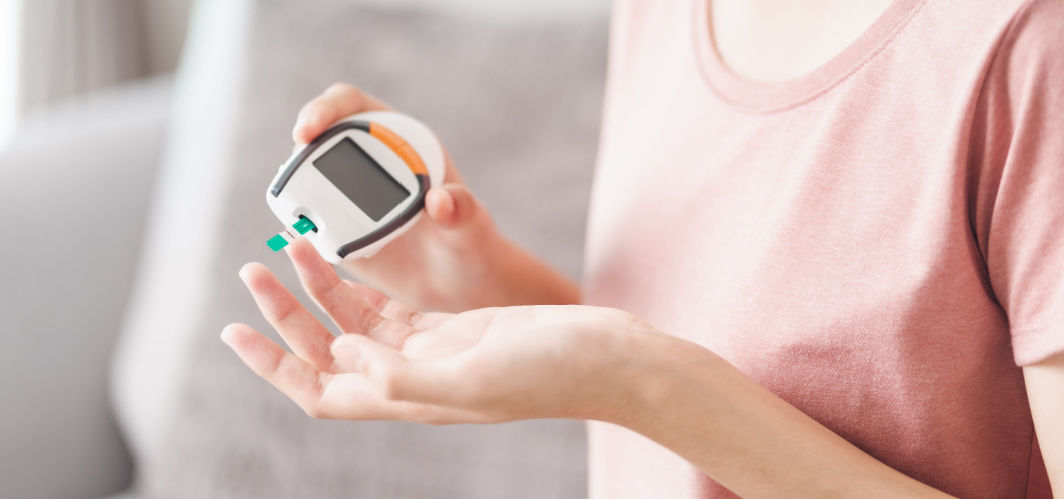Diabetes Management
3 Common Mistakes to Avoid While Blood Sugar Testing
2 min read
By Apollo 24|7, Published on - 13 September 2023, Updated on - 14 September 2023
Share this article
0
0 like

Keeping an eye on your habits, embracing lifestyle adjustments and incorporating regular exercise, are essential steps in mitigating the risk of disease for individuals living with diabetes. The ability to conduct self-blood sugar testing, which helps prevent severe complications and promotes a stress-free life, is important too. Nevertheless, individuals frequently find themselves making errors during this monitoring process. In this blog post, we'll explore three common blood sugar testing mistakes that you must avoid to ensure precise monitoring and the effective management of your health.
1. Pricking the Same Finger Daily
Repeatedly using the same finger for daily blood sugar tests can lead to discomfort or minor injury. To prevent this, you can alternate fingers from either hand when conducting blood sugar level tests.
2. Improper Hand Hygiene
Always begin by washing your hands thoroughly with soap and water, ensuring they are completely dry. Leftover residues from food or other substances on your fingers can contaminate the test strip, leading to inaccurate results.
3. Testing Right After Eating
Testing your blood sugar right after having a meal or a snack might give you a high reading on your glucometer. Testing fasting blood sugar and before eating would likely be more accurate. If you wish to test after eating, it is advisable to wait for two hours after eating.
Conclusion
Maintaining accurate blood sugar testing is pivotal for effective diabetes management. Avoiding these common mistakes will empower you to take better control of your condition and collaborate effectively with your healthcare team to make informed decisions regarding your diet, medication, and lifestyle. You should reach out to your healthcare provider for guidance and support if you have any questions or concerns regarding your blood sugar testing.
Diabetes Management
Consult Top Diabetologists
View AllLeave Comment
Recommended for you

Diabetes Management
How Can Sleep Apnea Affect Diabetes?
The relationship between sleep apnea and diabetes is a bi-directional one. Individuals with sleep apnea often experience interrupted breathing during sleep, leading to lower oxygen levels and increased stress on the body. This can worsen insulin resistance and blood sugar control. Conversely, unmanaged diabetes can increase the risk of sleep apnea. Therefore, it's crucial for those with diabetes to be aware of the potential connection and seek evaluation and treatment for sleep apnea if symptoms are present.

Diabetes Management
Managing Diabetic Neuropathy: Tips For Relieving Pain and Discomfort
While there's no cure, symptom management for relieving pain and discomfort is crucial for managing diabetic neuropathy. Tips include controlling blood sugar levels through a healthy lifestyle, medications prescribed by your doctor, regular exercise, and proper foot care. Pain relief options may include prescription pain relievers, antidepressants, and anticonvulsants. Consult a healthcare professional to create a personalised plan for managing diabetic neuropathy, which can help improve your quality of life.

Diabetes Management
How To Stay Energised During Dandiya Night?
To stay energised during Dandiya nights, it's essential to focus on hydration, comfortable clothing, and balanced nutrition. Hydrate well to maintain stamina, choose comfortable attire that allows free movement, and have a balanced meal before the event. Opt for light, energy-stabilising snacks during the night and take short breaks to prevent overheating. If you have diabetes, monitor your blood sugar levels, and ensure you have a light, balanced snack to replenish your energy as the night concludes.
Subscribe
Sign up for our free Health Library Daily Newsletter
Get doctor-approved health tips, news, and more.
Visual Stories

8 Fruits That are Incredibly Healthy for Diabetes
Tap to continue exploring
Recommended for you

Diabetes Management
How Can Sleep Apnea Affect Diabetes?
The relationship between sleep apnea and diabetes is a bi-directional one. Individuals with sleep apnea often experience interrupted breathing during sleep, leading to lower oxygen levels and increased stress on the body. This can worsen insulin resistance and blood sugar control. Conversely, unmanaged diabetes can increase the risk of sleep apnea. Therefore, it's crucial for those with diabetes to be aware of the potential connection and seek evaluation and treatment for sleep apnea if symptoms are present.

Diabetes Management
Managing Diabetic Neuropathy: Tips For Relieving Pain and Discomfort
While there's no cure, symptom management for relieving pain and discomfort is crucial for managing diabetic neuropathy. Tips include controlling blood sugar levels through a healthy lifestyle, medications prescribed by your doctor, regular exercise, and proper foot care. Pain relief options may include prescription pain relievers, antidepressants, and anticonvulsants. Consult a healthcare professional to create a personalised plan for managing diabetic neuropathy, which can help improve your quality of life.

Diabetes Management
How To Stay Energised During Dandiya Night?
To stay energised during Dandiya nights, it's essential to focus on hydration, comfortable clothing, and balanced nutrition. Hydrate well to maintain stamina, choose comfortable attire that allows free movement, and have a balanced meal before the event. Opt for light, energy-stabilising snacks during the night and take short breaks to prevent overheating. If you have diabetes, monitor your blood sugar levels, and ensure you have a light, balanced snack to replenish your energy as the night concludes.


